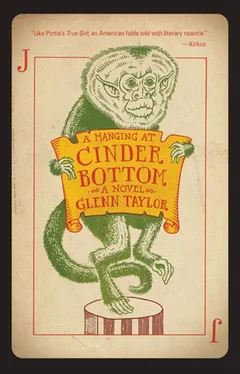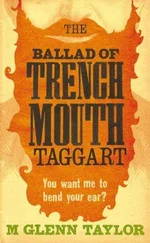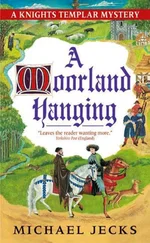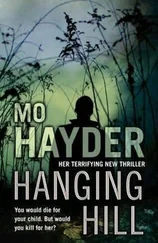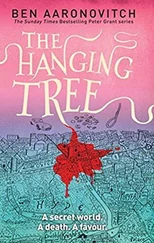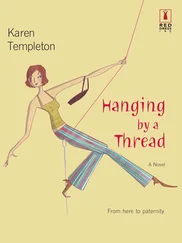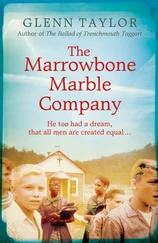Abe watched the man lose himself to what was in his head. He said, “Wan, I need to know where to wire him.”
“Booking fee,” said Mr. Wan. “Twenty dollar.”
HIDE THE WHISKEY AND BEND THE KNEE
June 22, 1910
Sallie Baach’s biscuit gravy had the immaculate texture of something neither liquid nor solid, a savory treacle only possible at the hands of a woman who knew how and when to use her bacon drippings. She carried the biscuits and gravy outside in a chafing dish with a bright nickel finish. She’d spit-polished it the night before with a cut piece of old cotton diaper.
Important men required such reflective chafing dishes, and it was important men who now remarked on the biscuit gravy’s texture and unearthly flavor. They sat on wicker throne chairs and chewed slow, remarking on the absurd relative flatness of Hood House land. Harold Beavers shaded his brow with a marble-board ledger book and surveyed the space between houses.
The goosegrass was no more. A week prior, Abe had bought an Acme lawnmower with four cutting blades. He’d paid five dollars for it to Cheshire Whitt, who’d won the mower at the Union Club card table.
Out front of the main house were parked two black Oldsmobile Runabouts. They’d come in on a flatcar from Cincinnati two days before, their arrival orchestrated to mark the Beavers’ return on the state’s forty-seventh birthday.
Sunlight refracted in the chafing dish, and Sallie squinted as she laid plates on a big lawn table. Al had fashioned it by bolting a de-hinged barn door on two sawhorses. It was covered in a white bedsheet.
Harold Beavers lowered his ledger book and sat down. “Some piece of hill plateau,” he said. He unscrewed the cap on his flask and poured its contents in his coffee.
Al Baach sat across from him, Abe to Al’s right. Rufus Beavers and Mayor Trent sat at the heads of the table.
Al stretched his bad leg, his boot sole pressed against the sawhorse, and he thought of how very strange it was that two months before, his oldest boy’s coffin had sat atop the very same prop.
“Mrs. Baach,” Harold Beavers said, “these biscuits is savory.”
She thanked him kindly.
Harold was going to run for the House of Delegates. Never mind he hadn’t lived in the district, much less the state, for twenty years. He had an address at the Alhambra. He had a new young wife who’d once won a Bathing Beauty Pageant in Rehoboth Beach, Delaware. She was still in Florida, awaiting his summons. He told her he had business to attend to before she graced his boyhood home. He didn’t tell her the business, a substantial portion of which was to throw a leg over every new whore in town.
Rufus Beavers thought his brother’s fresh wife too young. She was less than half his age. He ate fast and dredged every inch of gravy he could. He watched his brother laugh and blow his nose. Once, Rufus had his own sights on the legislature, but that time was long past.
Harold Beavers’ seated posture was bad and he wheezed at the chest. He craned his neck to watch Sallie’s backside as she walked to the house where she’d manage the chocolate cake. When she was out of earshot, he said, “Let’s us cut short the tittle-tattle and get something done.”
Trent had no appetite. He said, “Democrats are surging. Midterm will more than likely bring about a swing.”
Rufus shook his head. “There’s movement,” he said. “But it’s only the panhandles, and they been halfway there for a while anyhow.”
Trent was not in agreement. “There’s a Raleigh County man throwing money. Braxton too.”
“Them two is preaching prohibition,” Rufus said, “and any fucking Democrat who goes dry is a loser.”
It was the truth. Republican or Democrat, no dry candidate would ever carry the black belt, or any county for that matter, for temperance was not the workingman’s way.
Harold chewed with his mouth open. He looked at Al. He asked, “Is there any Jew that will court the prohibitionist candidate?”
“No.”
“How many Jews in Keystone now?”
Al thought. “Three hundred?”
Abe looked at his food while he ate. He’d begun to wonder by then if it was Harold Beavers who’d pulled the trigger on Jake, for no other had the man’s accuracy from long distance. And, from what Abe could gather, the Beavers had lit out for Florida the day after the shooting on Buzzard Branch. But here the man was, and though Abe listened to him close, he heard no guilt in his voice. Though he looked at him careful, he saw no culpability in his eyes.
Harold took up his knife. He put it in the jar of apple butter and commenced to spread his toast. “How many niggers?” he asked.
“Thousand,” Trent said. “Give or take.”
Harold laughed wheezy. “This has become some kind of place.” He’d heard the Baaches were rearing a half-black child. He aimed to get a look at the boy before day’s end. “I remember when there wasn’t any road or rail for twenty miles.” He waved at the ridges around them with the butter knife. “I climbed from peak to post like a goat.” He drank down his coffee and set the mug back hard. “That’s back when they used to call me Sneakup,” he said. “Sometimes Harry.” He laughed at the memory of his old good times. “Or they’d use my full moniker, you see. They’d say, ‘Lookout! Here comes Sneakup Harry Beavers.’” He laughed harder and raised up the empty coffee mug and banged it back down as a gavel. “Order!” he shouted. “Circuit Judge Rufus Beavers in session, kept in the black by way of his little brother, the newly minted delegate-elect from the county of McDowell, Sneakup Harry Beavers!”
Abe laughed genuine. The man had a way with words.
Harold took note of his enthusiasm. His good looks. “Boy, you’ve always had a smile that could sell used snuff, ain’t you?”
Abe shrugged his shoulders.
“How many nicknames you had boy?” he asked.
“Oh,” Abe said, “two or three.” He wondered how many straight days Harold Beavers had been stewed. He knew the look of those eyes. He’d worn them himself and sometimes still did.
Such eyes couldn’t see through a ladder.
“Man needs three nicknames at a minimum,” Harold said. A crow alighted on the high branch of a pitch pine and cawed. “What nickname was it they called your brother?” He pretended to search for a word. “Mary, was it? Nancy?”
Abe smiled. “Knot,” he said.
Al cleared his throat. “Preacher. Some call Jake Preacher.” He had his arms crossed over his belly. His black cap was sweat-stained in front.
Harold took out his tobacco and a paper and made a cigarette.
Abe said, “Why don’t we speak on your purchase of this land.”
“This boy has always been full up on the finest ideas,” Rufus Beavers said.
Al stood and walked toward the sound of the children.
“You’ll have to excuse Daddy,” Abe said. “He’s not yet come to peace with the transaction.” He put his elbows on the table and leaned forward. He explained to the Beavers brothers the finer points of the transaction’s timeline, which he and Henry Trent had been speaking on for weeks, alone in Trent’s office, Rutherford having been excused each time. The price had already been negotiated. The closing date was set for Monday, July the fourth, the only day that both Mr. Hood and his lawyer could travel to Kimball for the transfer of deed. The name on the contract would be Rufus Beavers, and on the sixth day of July, a crew of builders would break ground. They’d stand alongside Harold Beavers and have their picture made for the paper, and the headline would proclaim that two things were coming: the Westward Addition and the ascending sixth district delegate-elect.
Читать дальше
Конец ознакомительного отрывка
Купить книгу
